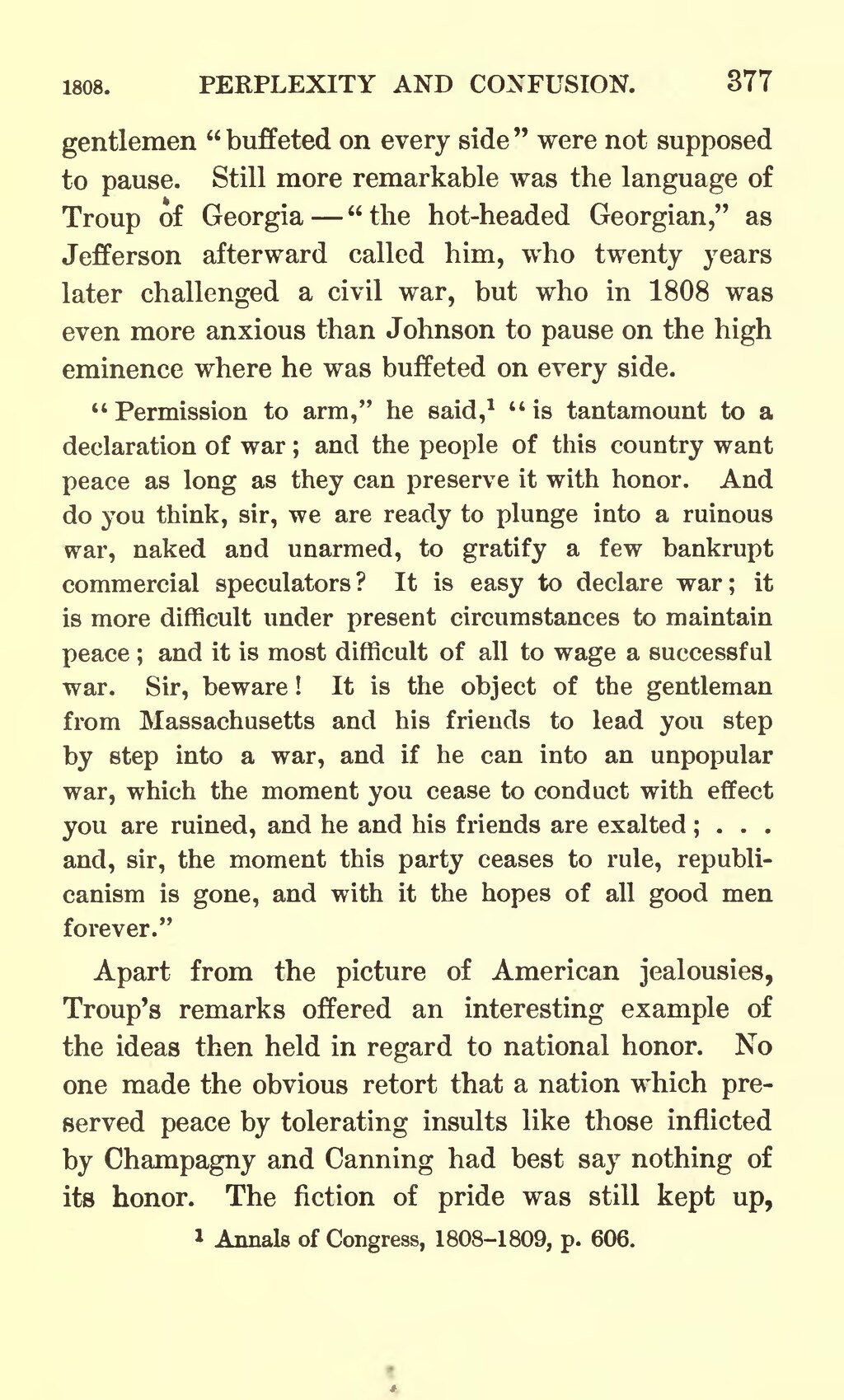1808.
PERPLEXITY AND CONFUSION.
377
gentlemen "buffeted on every side" were not supposed to pause. Still more remarkable was the language of Troup of Georgia—"the hot-headed Georgian," as Jefferson afterward called him, who twenty years later challenged a civil war, but who in 1808 was even more anxious than Johnson to pause on the high eminence where he was buffeted on every side.
- "Permission to arm," he said,[1] "is tantamount to a declaration of war; and the people of this country want peace as long as they can preserve it with honor. And do you think, sir, we are ready to plunge into a ruinous war, naked and unarmed, to gratify a few bankrupt commercial speculators? It is easy to declare war; it is more difficult under present circumstances to maintain peace; and it is most difficult of all to wage a successful war. Sir, beware! It is the object of the gentleman from Massachusetts and his friends to lead you step by step into a war, and if he can into an unpopular war, which the moment you cease to conduct with effect you are ruined, and he and his friends are exalted; . . . and, sir, the moment this party ceases to rule, republicanism is gone, and with it the hopes of all good men forever."
Apart from the picture of American jealousies, Troup's remarks offered an interesting example of the ideas then held in regard to national honor. No one made the obvious retort that a nation which preserved peace by tolerating insults like those inflicted by Champagny and Canning had best say nothing of its honor. The fiction of pride was still kept up,
- ↑ Annals of Congress, 1808-1809, p. 606.
